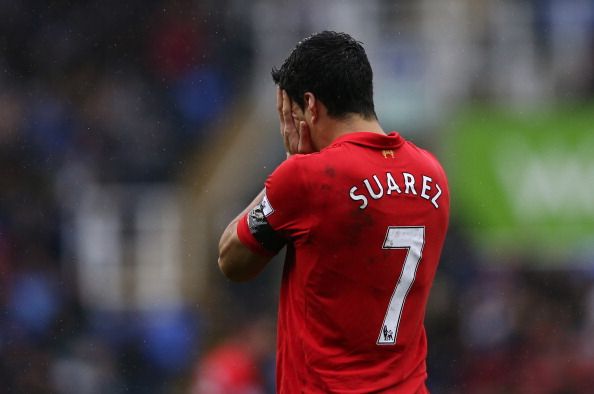
Luis Suarez: Is it all really the media's fault? (Part II)

Is he really that bad?
They say all press is good press. And those who say so think they are right because being in the press means you get attention. Being in the press means everybody takes notice of you and that, at its most base level, means you are famous. And your continuous presence in the media is necessary for you to continue to be famous.
Modern man has a very short attention span, given the information explosion that is taking place around him, which means there is a slew of news out there constantly jostling to get his attention. Lose the media and you cease to become famous (hence the expression ’15 minutes of fame’).
Those who say all press is good press are, however, forgetting one very important aspect: for what reason has the press centred itself around you?
In the case of Luis Suarez, sadly, it seems to be a scenario of what the press considers to be gross misdemeanours by the Liverpool striker. The press’s relationship with the talented Uruguayan is, sadly, a vicious cycle that only helps the media sell more newspapers on the streets.
The easiest way to provoke someone is to poke him or her repeatedly. They will sooner or later pay attention to you (whether they initially wanted to or not) and because you have been irking them, they will lash out. When they do lash out, the media’s flashbulbs are there to capture it in detail, and it is not uncommon to see detailed ‘analysis’ from specialists in the field, accompanied by a few zoomed in, grainy photographs that cast the spotlight over exactly what it is that Suarez has done.
And because the tendency of the human mind is to remember all that is negative, the image that forms over time is one of a player a majority of people sadly love to hate.
“This is a general tendency for everyone. Some people do have a more positive outlook, but almost everyone remembers negative things more strongly and in more detail.”
- Clifford Naas, Professor of Communication, Stanford University
The reason people remember negative actions for longer periods of time is because they involve more thinking, writes Alina Tugend of the New York Times. Information about negative acts requires more detailed processing and therefore those acts become stronger memories.
Add that argument to the reason we look at Suarez the way we do and it suddenly becomes clear. Those who are the masterminds at the presses of course know this, and that is why they try to prey on these human sentiments. But the targeting of Suarez by the presses (yes, I have made that assumption here) is a rather complex mixture which, when taken apart, shows the multi-faceted plan of attack on him.
It is now well known that the English media borders on the jingoistic. The best example to highlight this is Andy Murray’s recent win over Novak Djokovic in the final of the Wimbledon championships a few weeks ago. The press went ga-ga over his victory, which was only made all the more special since he was the first male Briton to win the famous old trophy since 1936.
Most papers dedicated pages of column length to him (conveniently forgetting that Virginia Wade had lifted it in 1977, with American publication The Atlantic politely reminding them so, but that is a tale for another time), calling him a hero for all of Great Britain to be proud of, a sentiment that was similarly echoed when he grabbed gold at the Olympics a year ago.
But losses, which are only naturally of a greater number than championship wins for any sportsman, did not belong to ‘Britain’s Murray’, in the eyes of the media.
No, those are shouldered by ‘Scotland’s Murray’, and such is the double standard, fair-weather stance that the media employs towards all forms of sport and the British Isles take part in.